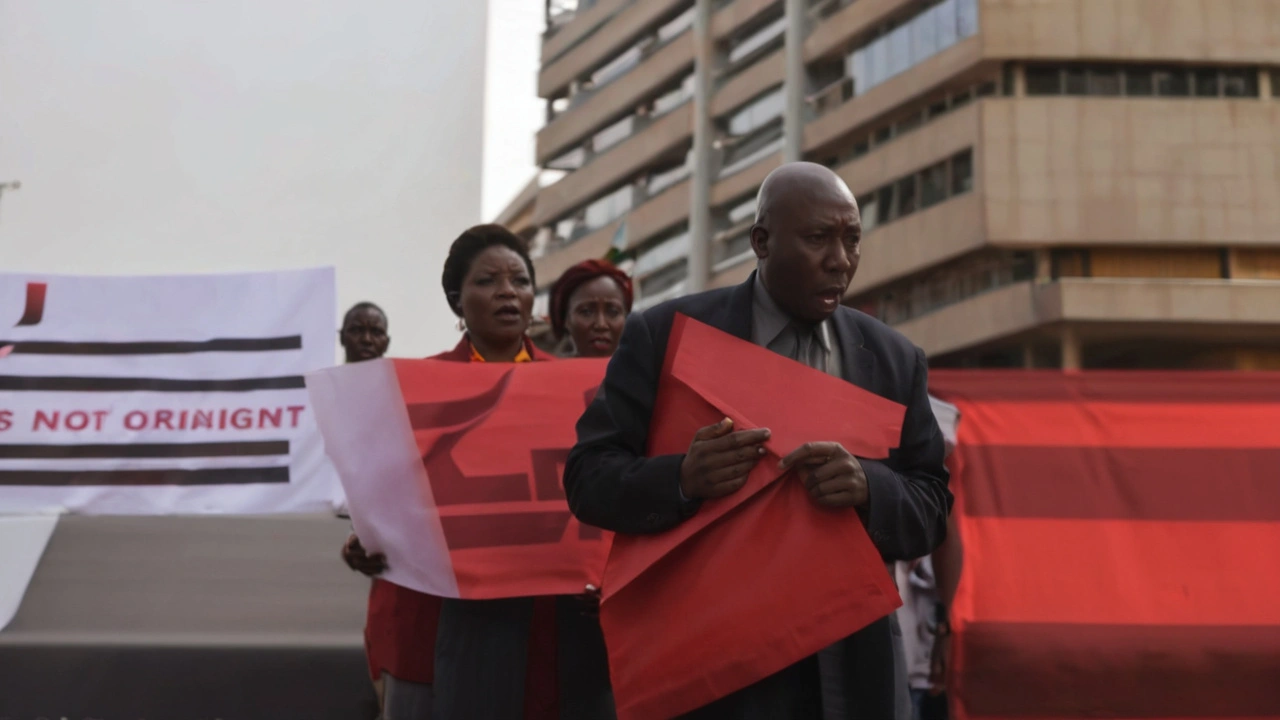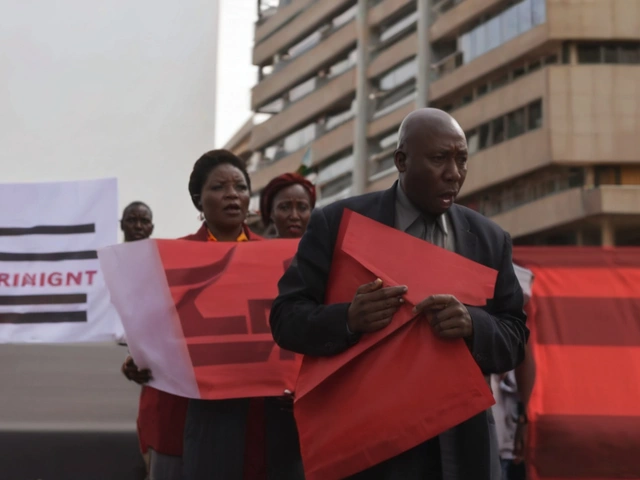COSATU Applauds Zizi Kodwa's Resignation from Parliament Amid Corruption Allegations
The Congress of South African Trade Unions (COSATU) has expressed approval over Zizi Kodwa’s decision to step down as a member of Parliament. As a once-prominent figure in the African National Congress (ANC) and a close ally of former President Jacob Zuma, Kodwa's resignation comes after mounting scrutiny and intense pressure surrounding allegations of corruption, notably the 'Fancy Blue Lights' scandal. The decision has been heralded by COSATU as a commitment to the values of accountability and integrity within the ANC.
A Step Towards Accountability
COSATU's spokesperson, Sizwe Pamla, publicly praised Kodwa’s resignation, describing it as a clear signal of accountability in political leadership. Amid ongoing public dissatisfaction over corruption within South Africa's political landscape, Pamla emphasized the importance of such actions in demonstrating genuine efforts towards transparency and ethical governance. The union federation, which has consistently called for the resignation of those implicated in corruption, sees Kodwa’s decision as a crucial step in maintaining the ANC’s credibility.
The scandal, dubbed 'Fancy Blue Lights', involves allegations of misuse of state funds for personal luxuries, and has cast a long shadow over Kodwa's political career. These revelations have intensified calls for stricter measures against corrupt practices, both within and outside the ANC. Settling the matter through resignation is perceived as a responsible course of action that can pave the way for more stringent ethical standards within the party.
Amid a series of high-profile corruption cases that have rocked the ruling party, Kodwa’s resignation is expected to serve as a powerful message to others in the ANC. The resignation not only underscores the need for accountability but also highlights the party’s willingness to confront and address its internal challenges. This act could initiate a chain reaction, prompting other officials facing similar allegations to step down and take responsibility.
Restoring Public Trust
Kodwa’s exit from Parliament is seen as a pivotal move in the ANC's broader strategy to rebuild public trust and demonstrate a commitment to clean governance. Public faith in political institutions has been severely eroded by numerous corruption scandals over the years, and the ANC's approach to handling these issues is under intense scrutiny. By taking decisive actions, the party aims to reassure the nation of its dedication to ethical principles and the rule of law.
The timing of the resignation also aligns with increasing pressures on the ANC leadership to adopt a more uncompromising stance on corruption. As South Africa grapples with economic challenges and social unrest, there is a growing demand for transparent and accountable governance. The resignation, therefore, is not only a personal decision for Kodwa but also a strategic move for the ANC to regain moral ground and credibility among the citizenry.
Furthermore, COSATU’s vocal support for Kodwa’s resignation highlights the influential role of civil society and trade unions in shaping political discourse in South Africa. Trade unions have historically been at the forefront of advocating for workers’ rights and ethical governance, and their endorsement of such actions further amplifies the call for integrity in political offices.
Implications for the ANC
The ANC is likely to face continued scrutiny regarding its internal governance and commitment to tackling corruption. Kodwa’s resignation, while significant, is part of a larger narrative where the party must consistently demonstrate its dedication to eliminating corrupt influences and promoting competent leadership. The effectiveness of these efforts will be closely monitored by both the public and political analysts.
Indeed, the ANC's ability to implement meaningful reform and uphold its professed values will be crucial as the country moves forward. The public’s response to Kodwa’s resignation will likely set the tone for future expectations from political leaders, and the ANC must capitalize on this momentum to solidify its stance against corruption. This period presents an opportunity for the party to undertake substantial reforms and reaffirm its pledge to ethical governance.
As South Africa continues its journey towards socio-economic stability and growth, the actions of political figures and the responses from their respective parties will play a critical role in shaping the nation's future. Zizi Kodwa’s resignation is a noteworthy development in this context, signaling a potential shift towards greater accountability and transparency within the political sphere.
With COSATU's endorsement, there is an added layer of pressure on other implicated officials to follow suit and prioritize the nation's interest over personal gains. The ANC's leadership must seize this moment to implement robust measures to ward off corruption and instill public confidence in their commitment to genuine reform. The path ahead is fraught with challenges, but steps like Kodwa’s resignation are essential building blocks in restoring trust and credibility in South Africa’s political landscape.






Post A Comment